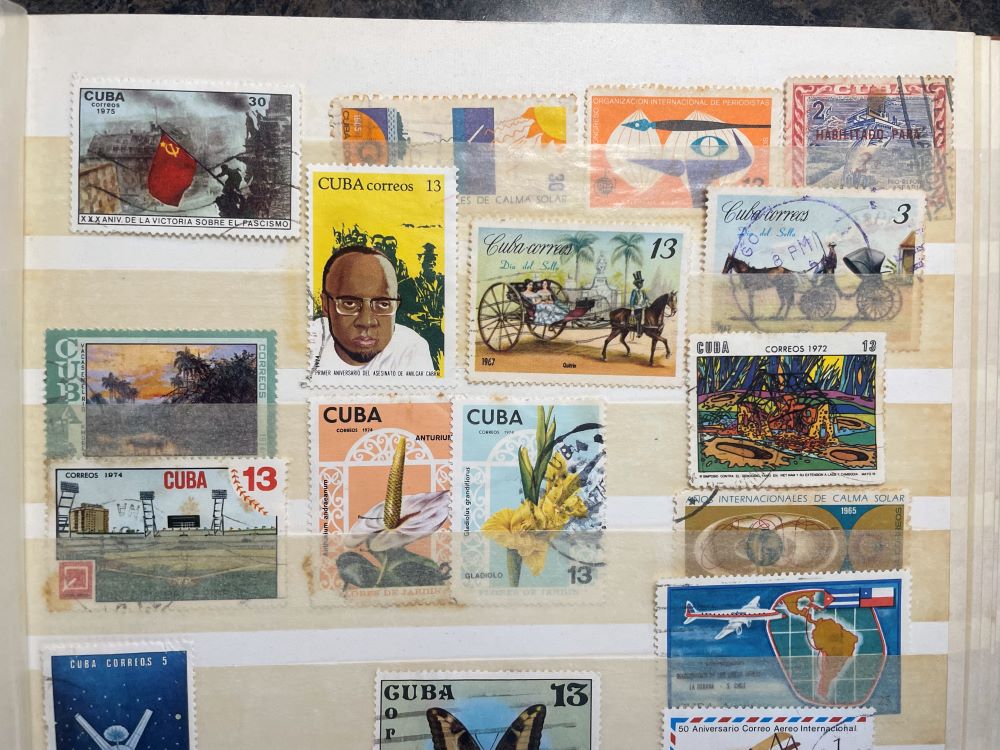A close-up of stamps reveals Cuba’s intense claims to solidarity with the world’s anti-colonial liberation movements in Africa and Vietnam and the Soviet Union’s victory over fascism in World War II. Yet contradictions persisted. One stamp honors Amilcar Cabral, a Marxist intellectual who launched independence in the Portuguese colony of “Guinea” (now Guinea Bissau) and argued for the “re-Africanization” of pride and culture. Alongside, another stamp unironically celebrates “The Day of the Stamp” with a depiction of women from Cuba’s sugar planter elite out for a ride in an open-air carriage driven by a calesero, one of Havana’s legendarily well-dressed slaves. Eduardo “Guayo” Hernández Collection, Smathers Libraries, University of Florida
